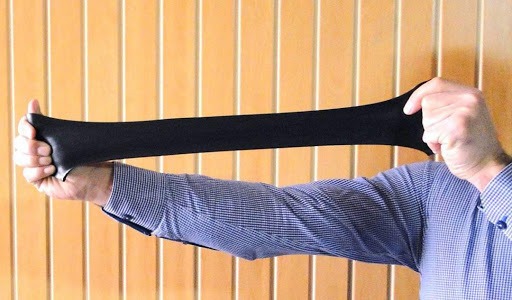Polymer Modified Bitumen: A Stronger, More Durable Solution for Roads and Roofs
Polymer modified bitumen (PMB) is a specially engineered material that offers significant advantages over traditional bitumen, also known as asphalt. By incorporating polymers into the bitumen mix, PMB gains enhanced properties that make it ideal for various construction applications, particularly those demanding superior strength, durability, and resistance to extreme weather conditions.
What is polymer modified bitumen and how does it work?
PMB is created by blending bitumen with one or more polymers, most commonly styrene-butadiene-styrene (SBS). This combination modifies the bitumen’s molecular structure, making it more elastomeric, or rubber-like. This elasticity translates to several key benefits:
- Increased resistance to cracking and fatigue: PMB’s flexibility allows it to better withstand repeated stress and strain, preventing cracks from forming and expanding under heavy traffic or temperature fluctuations.
- Improved deformation resistance: PMB is less susceptible to rutting and shoving, common problems with traditional bitumen in hot weather, ensuring a smoother and safer driving surface.
- Enhanced water resistance: PMB’s improved cohesiveness creates a tighter seal, better protecting against water infiltration and subsequent damage to the underlying structure.
- Wider temperature tolerance: PMB performs well across a broader range of temperatures, maintaining its workability in colder climates and preventing excessive softening in hot weather.
Applications of polymer modified bitumen
Due to its superior performance characteristics, PMB is widely used in various construction projects, including:
- Road pavements: PMB is particularly suited for high-traffic roads, highways, and bridges, where it can withstand heavy loads and harsh weather conditions.
- Airport pavements: PMB’s resistance to fatigue cracking and jet fuel spills makes it ideal for airport runways and taxiways.
- Roofing membranes: PMB’s waterproofing properties and flexibility make it a valuable material for flat roofs in both residential and commercial buildings
- Residential and Commercial Flat Roofs: PMB’s waterproofing properties and flexibility make it a valuable material for flat roofs. It effectively seals the roof membrane, protecting the building from leaks and harsh weather elements.
Choosing the right PMB for your project
PMB is not a one-size-fits-all solution. Different types of PMB are formulated to meet specific performance requirements based on factors like traffic volume, climate, and application. Consulting with a qualified engineer or construction professional is crucial to ensure you select the appropriate PMB grade for your project.
By opting for polymer modified bitumen, you can invest in a stronger, more durable, and longer-lasting solution for your roads, roofs, and other construction projects.
Polymer modified bitumen (PMB) has revolutionized the construction industry by offering a superior alternative to traditional bitumen (asphalt). This engineered material boasts enhanced properties, making it the go-to choice for demanding applications requiring exceptional strength, durability, and resilience.
Different PMB grades are formulated to cater to specific requirements based on factors like:
- Traffic Volume: The anticipated traffic volume on the road or surface directly influences the PMB grade selection. Higher traffic demands necessitate a PMB with superior resistance to fatigue cracking.
- Climate: The prevailing climatic conditions, particularly temperature extremes, play a role in choosing the appropriate PMB. Colder climates require PMB grades that remain flexible at lower temperatures, while hotter climates necessitate grades with increased resistance to softening.
- Application: The specific application, whether pavements, roofs, or other structures, also influences the PMB selection. Different applications have varying performance requirements, and choosing the right PMB grade ensures optimal performance.
Understanding the Science Behind PMB:
The magic lies in the synergy between bitumen and polymers. Bitumen, a naturally occurring viscous substance, gains remarkable properties when combined with specific polymers, typically styrene-butadiene-styrene (SBS). This interaction modifies the bitumen’s molecular structure, transforming it from a stiff and brittle material to a more elastomeric, or rubber-like, one.
Polymers commonly used in bitumen modification:
polymer modified bitumen involves incorporating various polymers into the bitumen mix to enhance its properties and performance. Here are some of the most commonly used polymers:
1. Thermoplastic Elastomers (TPEs):
- Styrene-Butadiene-Styrene (SBS): This is the most widely used polymer in bitumen modification. It significantly improves flexibility, elasticity, and crack resistance. SBS is commonly used in roofing membranes, bridge waterproofing, and specific road pavements.
- Styrene-Isoprene-Styrene (SIS): Similar to SBS, SIS offers improved flexibility and crack resistance. However, it is often used in mastics and sealants for joints and cracks due to its higher adhesive properties compared to SBS.
2. Plastomers:
- Ethylene Vinyl Acetate (EVA): This polymer enhances flexibility and adhesion properties of bitumen. It is commonly used in roofing membranes and pavements with moderate traffic volumes.
3. Reactive Polymers:
- Functionalized Polyolefins: These polymers chemically react with bitumen, creating a stronger and more durable bond. They are often used in high-traffic pavements and applications requiring superior resistance to rutting and fatigue cracking.
Additional factors to consider:
- Crumb Rubber: Recycled tire crumb can be incorporated into bitumen to create crumb rubber modified bitumen (CRMB). CRMB offers improved flexibility, noise reduction, and potential cost-effectiveness but may have limitations in load-bearing capacity compared to other modifications.
- Selection Criteria: The choice of polymer(s) for bitumen modification depends on various factors like desired properties, application, climate, and traffic volume. Consulting with a qualified engineer or construction professional is crucial for selecting the most suitable modification for your specific needs.
Conclusion:
By incorporating polymer modified bitumen into your construction projects, you invest in a stronger, more durable, and longer-lasting solution. PMB’s ability to withstand harsh conditions, resist cracking and deformation, and offer superior waterproofing makes it an invaluable asset for building robust and sustainable infrastructure. Remember, consulting with a qualified engineer or construction professional is crucial to ensure you select the most suitable PMB grade for your specific needs.
TTAPCO Introduces the AkaBit Line:
TTAPCO is proud to introduce the AkaBit line, a range of premium polymer modified bitumen (PMB) products formulated to deliver exceptional performance and durability for your construction projects. The AkaBit line comprises distinct grades: EL64, EL70, and EL76, each meticulously designed to cater to a specific set of requirements and applications.

